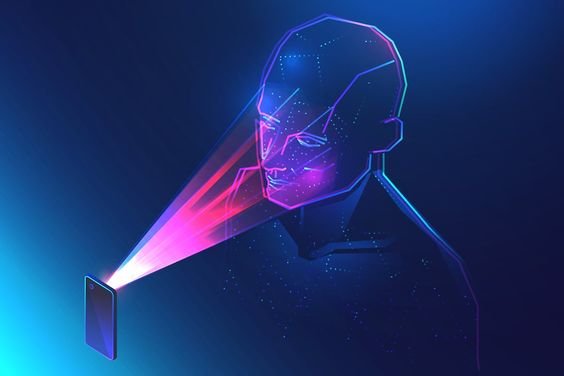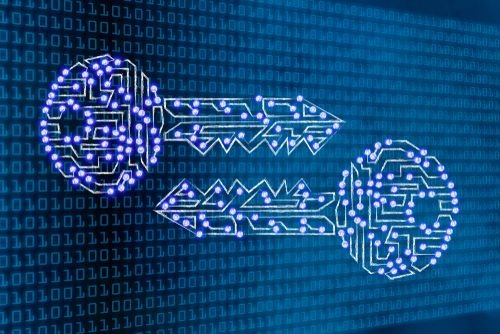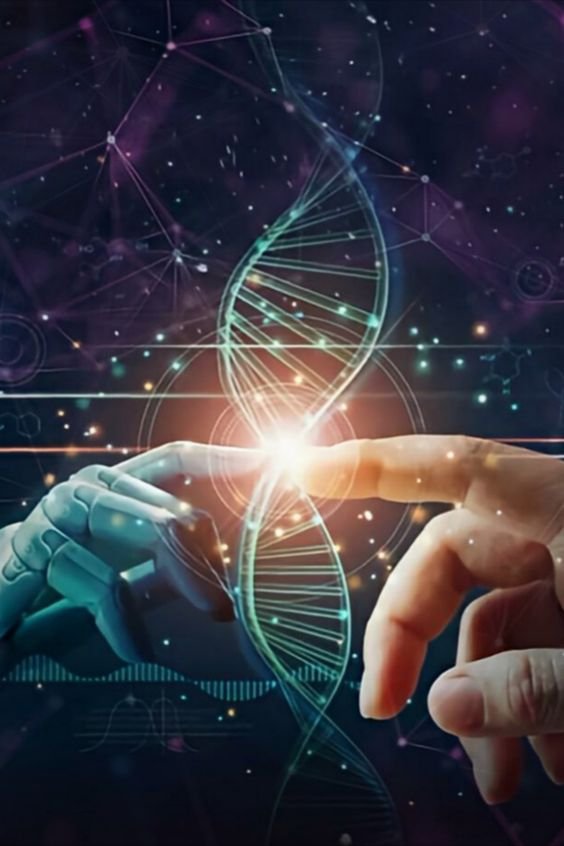
Artificial Intelligence (AI) has rapidly transformed the way we live, work, and interact with technology. From virtual assistants like Siri and Alexa to advanced algorithms that power self-driving cars, AI is everywhere. As AI continues to advance, many are beginning to wonder: will AI replace human jobs?
The future of work in the age of AI is a hot topic, with both optimism and concern about how it will affect employment. While some argue that AI will bring about more efficiency, innovation, and economic growth, others worry about the potential loss of jobs and the impact on workers.
In this article, we will explore the potential impact of AI on jobs, the industries most likely to be affected, the types of jobs AI may replace, and how humans can prepare for this shift. We’ll also discuss whether AI will completely replace human workers or simply change the way we work.
The Current State of AI in the Workforce
Before diving into the future, it’s essential to understand the current role of AI in the workplace. Today, AI is already playing a significant role in automating tasks across a variety of industries. It is being used to analyze data, process large volumes of information, improve decision-making, and even perform tasks that once required human intelligence.
Examples of AI in Action:
- Customer Service: Chatbots powered by AI are handling basic customer inquiries, providing 24/7 support without human intervention.
- Healthcare: AI is helping doctors analyze medical images, diagnose diseases, and even assist in surgeries with robotics.
- Manufacturing: AI-driven machines and robots are streamlining production lines, increasing efficiency, and reducing errors.
- Finance: AI algorithms are being used for fraud detection, risk assessment, and stock market trading, often making decisions faster and more accurately than humans.
While AI is already affecting how certain tasks are completed, the question remains: will it replace human jobs entirely, or will it work alongside people?
Will AI Replace Jobs? The Concerns
There is no doubt that AI will disrupt the workforce. A major concern is that AI may lead to mass job displacement, particularly for workers who perform repetitive tasks that can be easily automated. As AI systems become more advanced, there are worries that certain professions may become obsolete.
1. Automation of Routine Jobs
One of the biggest areas where AI is expected to replace human jobs is in roles that involve repetitive, predictable tasks. These jobs often require minimal decision-making, and AI systems can easily take over. Some of the industries most at risk include:
- Manufacturing: Assembly line workers are already being replaced by robots in many factories, and this trend is expected to continue as AI-powered machines become more sophisticated.
- Retail: Cashiers and store clerks are seeing their roles replaced by self-checkout systems and automated kiosks, reducing the need for human workers.
- Transportation: With the rise of self-driving cars, trucks, and drones, drivers may face job losses as AI takes over these roles in the future.
- Data Entry and Administrative Jobs: Tasks like data entry, scheduling, and basic record-keeping are increasingly being automated, reducing the need for administrative staff.
2. AI in Knowledge-Based Jobs
AI is also making inroads into more complex, knowledge-based jobs. For example, AI algorithms are being used in finance to make investment decisions, in law to review legal documents, and in journalism to generate news articles. In these fields, AI is not just replacing manual labor but also performing tasks that require analytical skills and expertise.
3. Concerns About Inequality
Another concern is that AI could exacerbate economic inequality. While AI may create new jobs in fields like AI development, robotics, and data science, these roles often require specialized skills and education. Workers without these skills may find themselves left behind as AI takes over more jobs, leading to a growing divide between those who can benefit from the AI revolution and those who cannot.
Jobs That AI Is Unlikely to Replace
While there are legitimate concerns about AI replacing jobs, it’s important to remember that not all jobs are equally at risk. Many professions involve tasks that are difficult for AI to replicate, particularly those that require human creativity, emotional intelligence, and complex problem-solving.
1. Creative Professions
Jobs that require creativity, originality, and artistic expression are difficult for AI to replace. While AI can generate music, art, and even written content, it still lacks the ability to produce truly original and nuanced work that resonates with human emotions. As a result, professions such as:
- Artists
- Musicians
- Writers
- Designers
are likely to remain dominated by humans, as creativity is a deeply human trait that AI struggles to fully replicate.
2. Jobs Requiring Emotional Intelligence
AI is still far from replicating human empathy and emotional intelligence. Roles that require interpersonal skills, relationship-building, and understanding of human emotions are likely to remain the domain of human workers. This includes jobs like:
- Healthcare Workers: Nurses, doctors, therapists, and caregivers play a critical role in providing emotional support and understanding to patients. While AI can assist in diagnostics, the human touch is irreplaceable in patient care.
- Teachers: While AI can provide educational tools and personalized learning experiences, it lacks the ability to mentor, motivate, and connect with students in the way that teachers do.
- Social Workers: Social workers must navigate complex emotional and social issues that require empathy, compassion, and deep understanding of human behavior.
3. Skilled Trades
Many skilled trade jobs, such as electricians, plumbers, and carpenters, are not easily automated. These roles often require hands-on problem-solving, manual dexterity, and the ability to adapt to unpredictable situations, making them difficult for AI to replace.
AI and Job Creation: A New Wave of Opportunities?
While AI is likely to replace some jobs, it also has the potential to create new ones. Historically, technological advancements have led to job displacement in the short term but have also created new industries and opportunities in the long term. AI may follow a similar pattern.
1. Jobs in AI Development and Maintenance
As AI continues to grow, there will be an increasing demand for professionals who can develop, implement, and maintain AI systems. This includes roles such as:
- AI Engineers: Professionals who design and build AI algorithms and systems.
- Data Scientists: Experts who analyze and interpret the vast amounts of data that AI systems rely on.
- AI Trainers: Individuals who help train AI systems by providing them with data, feedback, and adjustments to improve their accuracy and performance.
2. New Industries and Business Models
AI is likely to create entirely new industries and business models that we can’t fully predict today. Just as the internet led to the rise of e-commerce, social media, and the gig economy, AI may pave the way for new markets and job opportunities in areas such as:
- Autonomous Transportation: As self-driving cars and drones become more common, new jobs may emerge in vehicle monitoring, maintenance, and regulatory oversight.
- AI-Powered Healthcare: AI’s ability to analyze medical data and provide personalized treatment could create new roles in healthcare, such as AI specialists working alongside doctors to provide more accurate diagnoses and treatment plans.
- Smart Cities and Infrastructure: AI-driven solutions for urban planning, energy management, and public services could create jobs in the development and implementation of smarter, more efficient cities.
3. Human-AI Collaboration
Instead of replacing human jobs, AI may enhance human productivity by allowing workers to focus on higher-level tasks. In many industries, AI is already being used to handle routine tasks, freeing up employees to focus on more strategic, creative, or interpersonal work. This is sometimes referred to as “augmented intelligence,” where humans and AI collaborate to achieve better outcomes.
For example:
- In medicine, AI can assist doctors by analyzing test results, allowing doctors to spend more time with patients and make more informed decisions.
- In customer service, AI chatbots can handle simple inquiries, while human agents handle more complex issues that require empathy and critical thinking.
How Can Workers Prepare for the AI Revolution?
As AI continues to evolve, it’s essential for workers to adapt and prepare for the changes it will bring to the job market. Here are some ways workers can future-proof their careers in an AI-driven world:
1. Embrace Lifelong Learning
The rapid pace of technological change means that workers need to continually update their skills. Lifelong learning will be essential for staying competitive in the job market. This may involve:
- Learning new technical skills, such as coding, data analysis, or AI programming.
- Developing soft skills, such as communication, creativity, and emotional intelligence, which are harder for AI to replicate.
- Staying informed about industry trends and emerging technologies.
2. Focus on Skills AI Can’t Replace
Workers should focus on developing skills that AI is unlikely to replace, such as:
- Creativity: AI may be able to mimic certain creative tasks, but human originality and innovation will always be in demand.
- Problem-Solving: Complex problem-solving and critical thinking are skills that AI struggles to replicate.
- Emotional Intelligence: Jobs that require empathy, understanding, and relationship-building will continue to require human workers.
3. Be Open to New Career Paths
As AI reshapes the job market, new career opportunities will emerge. Workers should remain open to exploring new fields and industries, especially those related to AI and technology. Flexibility and adaptability will be key to navigating the changing landscape of work.
Conclusion: Will AI Replace Human Jobs?
The question of whether AI will replace human jobs doesn’t have a simple answer. AI is undoubtedly changing the way we work, automating routine tasks, and creating new opportunities. While some jobs will be replaced, others will be transformed, and entirely new jobs will be created.
Ultimately, the future of work in the age of AI is not about AI replacing humans but about how we can adapt and evolve to work alongside AI. By focusing on creativity, emotional intelligence, and continuous learning, workers can prepare for a future where AI and humans collaborate to achieve more than ever before.
The key to thriving in an AI-driven world is adaptability. Those who are willing to learn, evolve, and embrace new opportunities will be well-positioned for success in the future of work.







